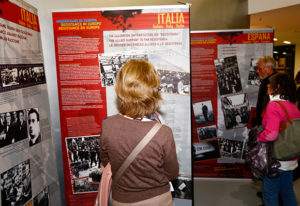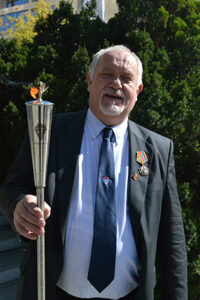The “Universal declaration of human rights” of the United Nations is a central political document of post-war history. The International Federation of Resistance fighters (FIR) – Association of Anti-fascists reminds in this connection of the fact that the political foundation for the foundation of the UN and the adoption of this declaration was the freedom fight of the peoples and nations against the fascist barbarism.
Already the survivors of the KZ Buchenwald demanded in April 1945 as consequence: “Creating of a new world of peace and freedom!”
These principles were in the “Universal declaration of human rights” write out in full. The goals of the declaration base on the ideals of the French revolution and their promises of “Freedom, equality, brotherliness”. Fascism in ideology and political practice tried to turn back these ideals. The common acting of the peoples in the antifascist fight overcame this threat.
Of cause we know that the principles of the “Universal declaration of human rights” do not determine actually the political and social reality in the today’s world. We have however no cause to point with the finger only in one direction. Human rights cannot be reduced to freedom of the expression of opinion or the entrance to the Internet. Even in the developed industrial nations fundamental rights and freedoms are often not ensured, like in particular the right to work and education, to have a human beingworthy accommodation or the protection from racist discrimination.
The FIR and its member federations stand today and in the future for the implementation of the ideals of the “Universal declaration of human rights” as a whole. These rights are not given humans. Such rights and freedoms are realisable – in such a way the historical experience teaches – only by social fights. Veterans of the anti-fascist fight and the anti-fascists of today’s generations are fellow combatants in such movement.
The memory at the 60th anniversary of the “Universal declaration of human rights” is in this way none “empty commemorating”, but a request for acting for a better world.


